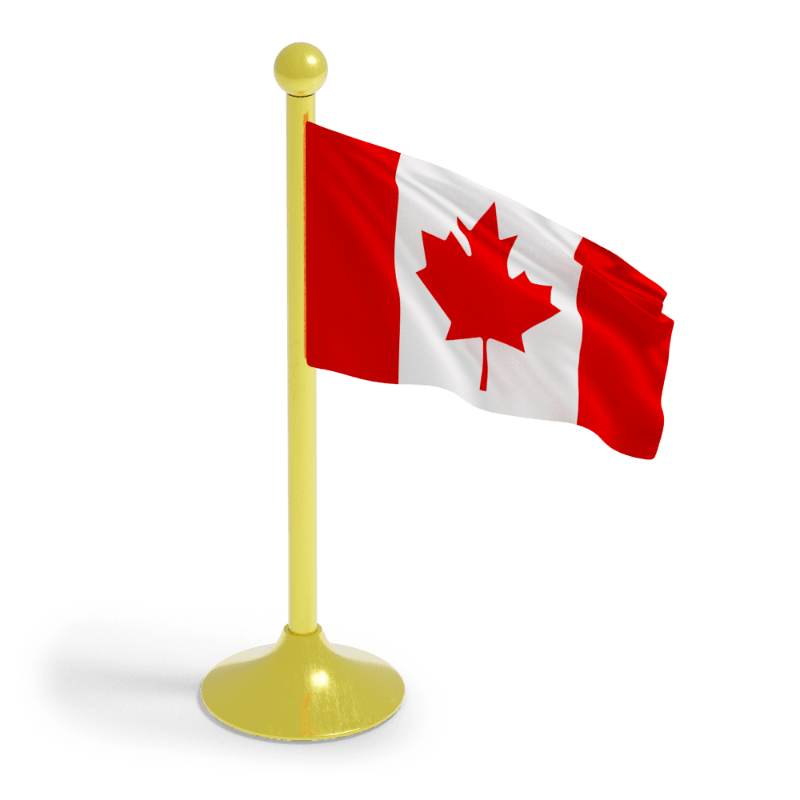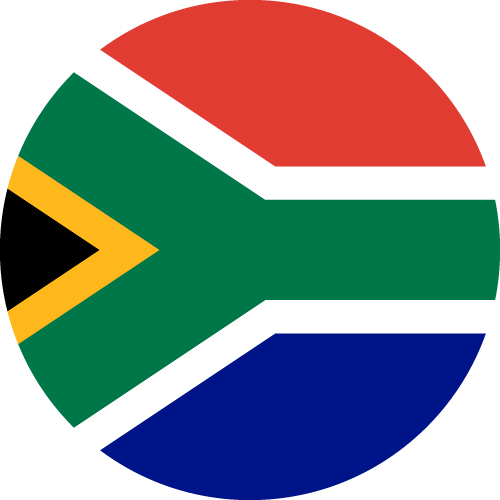What is the Canadian citizenship program?
The government body of Immigration, Refugees, and Citizenship Canada (IRCC) manages matters related to Canadian citizenship.
There are 2 ways to obtain citizenship: by birth or by Naturalization. Naturalization is the process of attending a ceremony and swearing an oath to become a Canadian citizen. Canada also allows you to have dual or multiple citizenships.
To be eligible for Canadian citizenship, you must be a permanent resident, live in Canada for 3 years in the last 5 years, be able to speak either English or French, not have a criminal record in the recent past or an ongoing criminal case, and pass a test to prove your knowledge of Canada’s geography, political system, history, and rights of the citizens.
There are 3 types of documents that can be used as proof of citizenship: Naturalization Certificate, Registration of Birth Abroad, and a Citizenship certificate. A Canadian citizenship certificate can be issued to individuals born in Canada, born abroad to Canadian citizens, or permanent residents who have been granted citizenship.
The processing time for a grant of citizenship is 12 months.
How to Apply for a Canadian visa
To apply for a Canadian visa, you must first know the different types of visas available. You can choose to apply for a visitor visa, student visa, work visa, permanent resident visa, business immigrant visa, or express entry program visa.
Once you have finished deciding which specific program or visa you want to apply for, you need to make sure that you’re eligible. Eligibility varies from visa to visa, so click here to find out which pathway is best for you.
If you are eligible, have all the necessary documents, and are ready to begin the process, you will have to pay certain fees, compile your documents, and wait for your visa to be processed. Visa processing times also vary. It usually takes between two and four weeks, but in some cases can take longer.
What documents do I need when applying for a Canadian visa?
The required documents for a Canada visa are your passport, the appropriate Canada Visa application form, proof of paid Canada Visa fees, proof of a clean criminal record, proof of good health via a medical exam, photographs in accordance with the photo requirements for Canada Visa, proof of financial means, proof you will return to your home country once your Canada Visa expires, identity and civil status documents, a cover letter that explains the purpose of your traveling to Canada, and a letter of support/invitation to Canada.
All documents and requirements vary on a case to case basis, so it is best to book a consultation with an immigration expert.
What is the photo size for a Canadian visa?
For a Canadian Visa, the frame size must be at least 35 mm x 45 mm (1 3/8″ x 1 3/4″). The photographs must show the full front view of the head, with the face in the middle of the photograph, and include the top of the shoulders. The size of the head, from chin to crown, must be between 31 mm (1 1/4″) and 36 mm (1 7/16″).
How to apply for a Visa extension
A visitor visa with temporary residence status authorizes you to legally stay in Canada to visit, work, or study for a definitive period of time. You may also be required to follow specified terms and conditions based on your visa and the purpose of your stay.
You are required to apply for an extension when you want to either change the conditions of your stay or extend your visa. Visa extensions are one of the most commonly requested types of Canadian visas.
You qualify for a visa extension from within Canada if you are a visitor to Canada, a study permit holder, or a work permit holder. A visa extension can be applied by those who still hold a valid legal status in the country.
What are the requirements for getting a Canada visa?
To be eligible as a visitor in Canada, you must have a valid travel document, demonstrate sufficient ties to your home country, have enough funds to support your stay, be in good health, and not be inadmissible for reasons such as criminal activity, human rights violations, or other security reasons.
The length of stay allowed is restricted to various conditions. Citizens of certain countries might need to provide biometric information in order to confirm identity and review past crimes or previous challenges with Canadian immigration.
If you are looking to enter Canada and you are not a permanent resident or from a visa-exempt country, you are required to have a visitor visa. Visa-exempt nationals may still be required to have an Electronic Travel Authorization (e TA).
Only Canadian citizens and permanent residents can enter Canada without a visitor visa. Depending on the purpose of your visit, you may have to apply for different forms of the visitor visa. For example, if you are coming to Canada for business purposes, then you may need a Business Visitor Visa.
How to appeal for Canada visa refusal?
The most common reasons for a Canadian visa rejection include failure to provide proper documentation, failure to demonstrate required financial resources to support yourself and your dependent in Canada during your stay, failure to demonstrate your clear intention for residing in Canada, and failure to clear inadmissibility on security grounds, criminality, or human rights violations.
There are many other reasons why your application can be refused. Based on the type of application, you can appeal the refusal or reapply for the visa.
If you received a visitor visa rejection, you can make a request to access the visa officer’s notes regarding the reason for your refusal. You can decide on what action to take based on the fairness of the decision against your eligibility for the visa and the documentation provided to support your application.
If you think that a mistake has been made or supporting documentation was disregarded, you can request for reconsideration. A request for reconsideration must be made within a 10 day period. If you cannot apply for reconsideration, then reapplication can be an alternative to overcome the reasons for the previous refusal. You’ll have to provide additional documentation and information to clarify the issues.
If your application is refused again, then you can appeal for a judicial review to the Federal Court of Canada. Learn more about how to handle specific visa/permit refusals here.
How much does a Canadian immigration consultant cost?
Initial consultations at My Visa Source are free. A qualified immigration lawyer and their team are assigned to your case to help obtain necessary information and documentation from you. They have navigated interactions with thousands of clients and have ensured a tailored personal touch with every case.
After that, fees will vary. Not every case is the same, the legal fees take into account your immigration goal and the complexity of the case in a cost effective manner.
Is it hard to get a visa to Canada?
Typically, no. Our consultants make the immigration process as easy and comfortable as possible for you. So long as you have the required documentation and meet the eligibility requirements, Canadian immigration should not be a difficult process. Of course, everything varies on a case by case basis.
Which countries require a visa to enter Canada?
Travelers from the following countries need a visa to come to Canada by any method of travel - plane, car, bus, train, or cruise ship: Afghanistan, Albania, Algeria, Angola, Antigua and Barbuda, Argentina, Armenia, Azerbaijan, Bahrain, Bangladesh, Belarus, Belize, Benin, Bhutan, Bolivia, Bosnia-Herzegovina, Botswana, Brazil, British subjects (subject to control), Burkina Faso, Burma (Myanmar), Burundi, Cambodia, Republic of Cameroon, Cape Verde, Central African Republic, Chad, People’s Republic of China, Colombia, Comoros, Democratic Republic of Congo, Republic of Congo, Republic of Costa Rica, Cuba, Djibouti, Dominica, Dominican Republic, East Timor, Ecuador, Egypt, El Salvador, Equatorial Guinea, Eritrea, Ethiopia, Fiji, Gabon, Gambia, Georgia, Ghana, Grenada, Guatemala, Guinea, Guinea-Bissau, Guyana, Haiti, Honduras, India, Indonesia, Iran, Iraq, Israel, Ivory Coast, Jamaica, Jordan, Kazakhstan, Kenya, Kiribati, North Korea, Kosovo, Kuwait, Kyrgyzstan, Laos, Lebanon, Lesotho, Liberia, Libya, Macao Special Administrative Region, Macedonia, Madagascar, Malawi, Malaysia, Maldives Islands, Mali, Marshall Islands, Mauritania, Mauritius, Federal States of Micronesia, Moldova, Mongolia, Montenegro, Morocco, Mozambique, Namibia, Nauru, Nepal, Nicaragua, Niger, Nigeria, Oman, Pakistan, Palau, Palestinian Authority, Panama, Paraguay, Peru, Philippines, Qatar, Romania, Russia, Rwana, Sao Tome e Principe, Kingdom of Saudi Arabia, Senegal, Serbia, Seychelles, Sierra Leone, Somalia, South Africa, South Sudan, Sri Lanka, St. Kitts and Nevis, St. Lucia, St. Vincent and the Grenadines, Sudan, Surinam, Swaziland, Syria, Taiwan, Tajikistan, Tanzania, Thailand, Togo, Tonga, Trinidad and Tobago, Tunisia, Turkey, Turkmenistan, Tuvalu, Uganda, Ukraine, Uruguay, Uzbekistan, Vanuatu, Venezuela, Vietnam, Yemen, Zambia, Zimbabwe.
Which countries do not need a visa for Canada?
The following travelers need an Electronic Travel Authorization (e TA) to board their flight to Canada. However, these travelers do not need an e TA if entering by land or sea. The countries that do not require a visa for Canada include Anorra, Australia, Austria, Bahamas, Barbados, Belgium, British citizen, British National (Overseas), British overseas citizen, British Overseas territory citizen with citizenship through birth, descent, naturalization, or registration in one of the territories of Anguilla, Bermuda, British Virgin Islands, Cayman Islands, Falkland Islands (Malvinas), Gibraltar, Montserrat, Pitcairn Island, Saint Helena, Turks and Caicos Islands, British subject with a right abode in the U.K., Brunei Darussalam, Bulgaria, Chile, Croatia, Cyprus, Czech Republic, Denmark, Estonia, Finland, France, Germany, Greece, Hong Kong, Hungary, Iceland, Ireland, Israel (must have a national Israeli passport), Italy, Japan, Republic of Korea, Latvia, Liechtenstein, Lithuania, Luxembourg, Malta, Mexico, Monaco, Netherlands, New Zealand, Norway, Papua New Guinea, Poland, Portugal, Romania (electronic passport holders only), Samoa, San Marino, Singapore, Slovakia, Slovenia, Solomon Islands, Spain, Sweden, Switzerland, Taiwan (must have an ordinary passport issued by the Ministry of Foreign Affairs in Taiwan that includes the personal identification number), United Arab Emirates, United States, Vatican City State.
Foreign nationals in the following situations also do not need a visa to enter Canada: French citizens who live in Saint Pierre and Miquelon flying directly to Canada from Saint Pierre and Miquelon, foreign nationals who are passengers destined to (or coming from) the US on a flight that stops in Canada to refuel, foreign nationals who are passengers on a flight that makes an unscheduled stop in Canada, and foreign nationals who transit through a Canadian airport under the Transit Without Visa or China Transit Program.
Lastly, travel and official representatives, flight crew, civil aviation inspectors, accident investigators who are or will be working in Canada, members of the Armed Forces coming to Canada to carry out official duties, and Diplomats accredited by the Government of Canada can enter Canada without a visa.
Can I go to the US with a Canada visa?
Canadian citizens do require a visa to enter the USA if they are going to visit for longer than six months, or if their visit is for reasons other than pleasure, such as to engage in business.
Can I go to Canada with a US Visa?
Most travelers need a visitor visa or an e TA to travel to, or transit through, Canada. What you need depends on the type of travel document you will travel with, the country that issued your travel document, your nationality, and how you will travel to Canada.
Which countries can I visit with a Canada visa?
If you have a Canadian passport, you can travel to the following countries without any visa at all: Albania, American Samoa, Andorra, Anguilla, Antigua and Barbuda, Argentina, Aruba, Australia, Austria, Bahamas, Barbados, Belarus, Belgium, Belize, Bermuda, Bolivia, Bonaire, Bosnia and Herzegovina, Botswana, Brazil, British Virgin Islands, Brunei, Bulgaria, Cape Verde Islands, The Cayman Islands, Chile, Colombia, Cook Islands, Costa Rica, Croatia, Curacao, Cyprus, Czech Republic, Denmark, Dominica, Dominican Republic, Ecuador, El Salvador, Estonia, Eswatini (Swaziland), Falkland Islands, Faroe Islands, Fiji, Finland, France, French Guiana, French Polynesia, French West Indies, The Gambia, Georgia, Germany, Gibraltar, Greece, Greenland, Grenada, Guam, Guatemala, Guyana, Haiti, Honduras, Hong Kong, Hungary, Iceland, Indonesia, Ireland, Israel, Italy, Jamaica, Japan, Kazakhstan, Kiribati, Kosovo, Kyrgyzstan, Latvia, Lesotho, Liechtenstein, Lithuania, Luxembourg, Macao, Malaysia, Malta, Mauritius, Mayotte, Mexico, Micronesia, Moldova, Monaco, Mongolia, Montenegro, Montserrat, Morocco, Namibia, Netherlands, New Caledonia, New Zealand, Nicaragua, Niue, Northern Mariana Islands, North Macedonia, Norway, Palestinian Territory, Panama, Peru, Philippines, Poland, Portugal, Puerto Rico, Qatar, Reunion, Romania, San Marino, Sao Tome and Principe, Senegal, Serbia, Singapore, Slovakia, Slovenia, South Africa, South Korea, Spain, Sri Lanka, St. Kitts and Nevis, St. Lucia, St. Maarten, St. Vincent and the Grenadines, Sweden, Switzerland, Taiwan, Thailand, Trinidad and Tobago, Tunisia, Turks and Caicos Islands, Ukraine, United Kingdom, The United States of America, Uruguay, US Virgin Islands, Uzbekistan, Vanuatu, and Vatican City.
How long does it take to get a Canada visa?
Canada Visa processing usually takes between 2 and 4 weeks, but may take longer depending on various factors, such as eligibility, the country you’re applying from, and which visa you’re applying for.
How to check your Canadian visa application status?
If you applied for your visa online, you will need to sign into an account to check your application status, depending on which website you applied through. There should be navigation allowing you to click something regarding checking your status and messages.
When checking through the Government of Canada website, you will need to answer a few questions regarding your age, which visa you applied for, and your intended length of stay so they can properly show you the status of your application. Make sure that you have also received your acknowledgement of receipt (AOR) letter or email and that you have your passport number on hand (it may be required in some cases).
What are the conditions for visa-exemption in Canada?
You are visa exempt in Canada if you are a foreign national who is not a Canadian citizen or a permanent resident, and who does not normally need a visa to enter Canada.
The following 55 countries can travel to Canada visa-exempt and must apply for an eTA:
Andorra, Antigua and Barbuda, Australia, Austria, Bahamas, Barbados, Belgium, Brazil, Brunei, Bulgaria, Chile, Croatia, Cyprus, Czech Republic, Denmark, Estonia, Finland, France, Germany, Greece, Hong Kong, Hungary, Iceland, Ireland, Israel, Italy, Japan, Latvia, Liechtenstein, Lithuania, Luxembourg, Malta, Mexico, Monaco, Netherlands, New Zealand, Norway, Papua New Guinea, Poland, Portugal, Romania, Samoa, San Marino, Singapore, Slovakia, Slovenia, Solomon Islands, South Korea, Spain, Sweden, Switzerland, Taiwan, United Kingdom, Vatican City.
The United States is also visa exempt but U.S. citizens are not required to apply for an eTA when traveling to Canada.






















